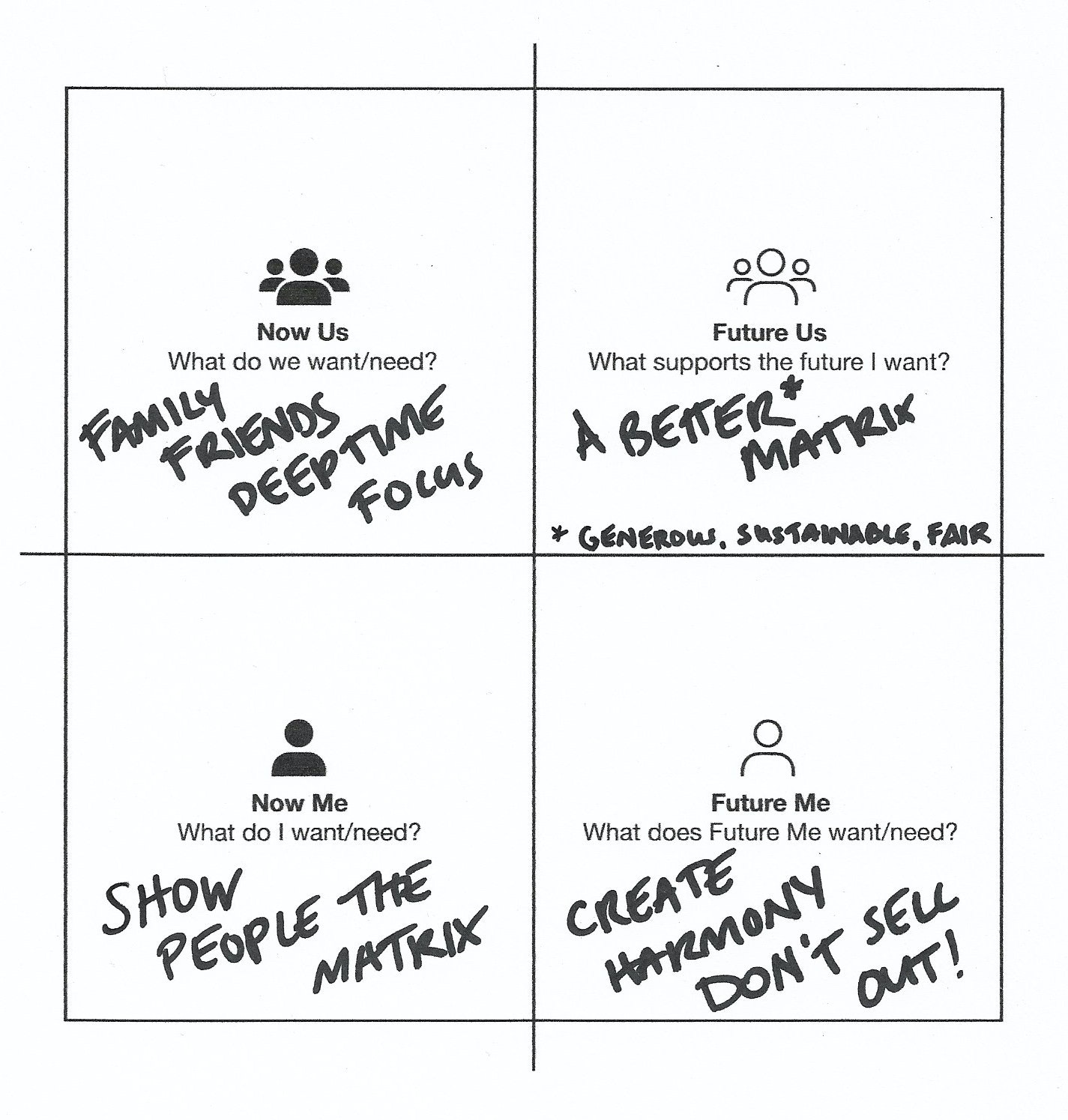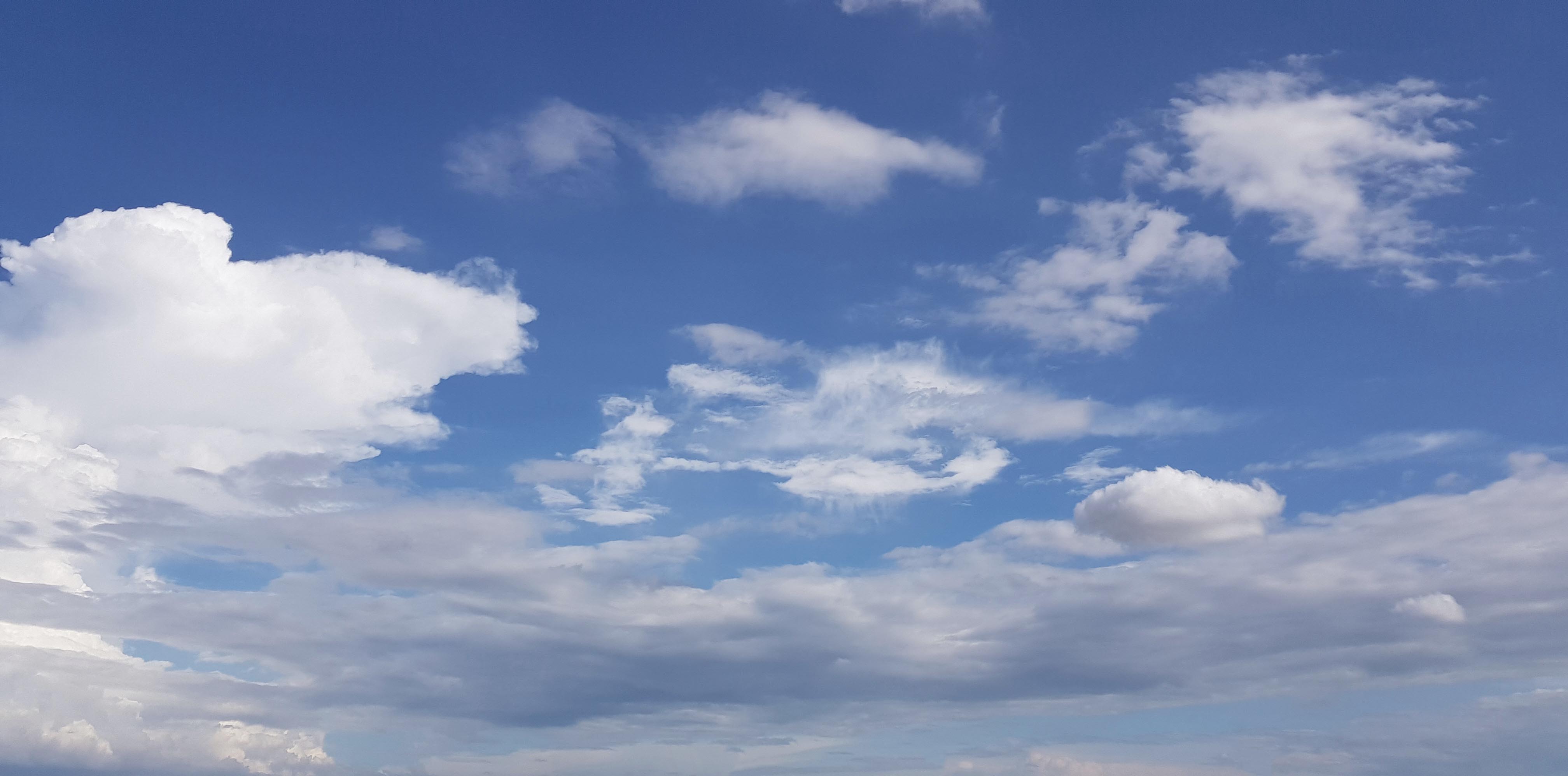What does it mean to be Bentoist or, if you like, Bentoish?
It means prioritizing others’ needs along with your own.
It means making a conscious effort to consider now and the future.
It means pursuing outcomes that meet all dimensions of your self-interest.
In many ways these are basic things. Obvious things. That doesn’t make them easy things. More than once this week I failed to live up to them. But striving to seek coherence between ourselves and our worlds is at the heart of Bentoism.
We’re in a moment where a bento-like shift in perspective is desperately needed. As writer Jia Tolentino put it in Interview Magazine, for the world to positively change “the dream of collective well-being has to outweigh, day-to-day, the dream of individual success.”
This is especially true in America. Sociologist Wade Davis writes in a sobering Rolling Stone essay about how short-term individualism overtook the US:
More than any other country, the United States in the post-war era lionized the individual at the expense of community and family. It was the sociological equivalent of splitting the atom. What was gained in terms of mobility and personal freedom came at the expense of common purpose… The American cult of the individual denies not just community but the very idea of society. No one owes anything to anyone.
America came to define freedom as “freedom from obligation” instead of “freedom from undo suffering.” But as filmmaker Adam Curtis told me in conversation several years ago:
There are different definitions of freedom. The contemporary idea of freedom is very much an individualist one. I, as an individual, want to be free to do what I want to do.
There is another definition of freedom which simply says, “In whose service is perfect freedom.” By giving yourself up to the Lord, you free yourself of the narrow cage of your own desires and your own selfishness. You become bigger. You become a bigger person and part of something.
The idea of individual self-expression—whilst feeling limitless because the ideology of our age is individualism—looked at from another perspective is limiting because all you have is your own desires. There are other things that could free you from that. It’s a different kind of freedom.
When we’re limited to our individual selves, we’re smaller. Less powerful. This is what keeps the status quo the status quo.
Something else Adam Curtis observed helped inspire Bentoism. He told me:
The hyperindividualism of our age is not going to be going back into the bottle. You’ve got to square the circle. You’ve got to let people still feel they’re independent individuals, yet they are giving themselves up to something that is awesome, greater, and more powerful that carries them into the future beyond their own existence. That’s what people are yearning for.
My own yearning to “square the circle” is what drew me to create Bentoism. Perhaps that same yearning is what drew you here, too.
In our bentos we’re not alone. We’re surrounded by our Now Us. We’re counseled by the wisdom of our Future Me. We’re inspired to shape Future Us for the better. We’re called to see beyond Now Me.
The bento is a map to the bigger versions of us. The versions that continue “into the future beyond [our] own existence.” A map to what our future can be.
Recap
Weekly Bento: The Leap of Faith — Sunday August 9, 2020 — 52 attendees
In the most recent Weekly Bento, we explored how we move between Now and Future states. What might you find in your future if you had the courage to make the leap? Watch the video and follow along to discover where your Future Me might take you.
Linknotes
1.
Adam Curtis’ documentary series The Century of the Self is absolutely essential on the history of individualism. Can’t recommend highly enough.
2.
“Beware of Corporate Promises” by Jerry Useem in The Atlantic and “The Danger of Side Salads” by Anand Giridharadas are striking on the downsides of companies professing to do good. From The Atlantic:
Less than a year ago, nearly 200 CEOs signed a solemn pledge, issued by the Business Roundtable, to stop caring primarily about their shareholders and to serve the needs of their workers, communities, and country too. The Wharton management professor Tyler Wry has been compiling data on the signatories’ behavior since. “We were interested in whether these statements were worth the paper they were printed on, or just symbolic,” he told me recently. “When COVID hit, it was a natural experiment and a chance to see if companies were living up to their word.”
The results have startled him. As COVID-19 spread in March and April, did signers give less of their capital to shareholders (via dividends and stock buybacks)? No. On average, signers actually paid out 20 percent more of their capital than similar companies that did not sign the statement. Then, as the coronavirus swept the country, did they lay off fewer workers? On the contrary, in the first four weeks of the crisis, Wry found, signers were almost 20 percent more prone to announce layoffs or furloughs. Signers were less likely to donate to relief efforts, less likely to offer customer discounts, and less likely to shift production to pandemic-related goods.
The article goes on:
[T]here’s reason to believe that such vocal calls for change from corporations could actually be worse than meaningless — and in fact damage the chances that corporations will follow through on meaningful change in the months and years ahead.
Why? The theory goes that by saying they’re doing good, companies make themselves feel as if they’ve already done good and in the end do worse. Something to think more about.
3.
The author Ocean Vuong, whose Creative Independent interview on generosity is a personal favorite, is joining an extraordinary Future Us library:
Ocean Vuong is to become the seventh author in the Future Library, an ongoing art project that sees contemporary writers pen works that will remain unread until 2114, when they will be opened and printed on 1,000 trees currently growing just outside Oslo.
Each author makes the trek to Nordmarka forest, high above Oslo and where 1,000 trees were planted in 2014, to surrender their manuscripts in a short ceremony. For the next century, the manuscripts will be sealed in Oslo’s Deichman public library until 2114, when the trees will be cut down to make the paper on which the 100 manuscripts will be printed — and, finally, read.
4.
In a study released this week and shared by the BBC, researchers have uncovered evidence of benefits from role play. In a study on the effects of “self-distancing” and the use of alter egos, researchers found physiological changes based on alter ego-like thinking. In one study, children asked to pretend they’re Batman “increased their resolve and concentration, improving their executive function” in measurable ways. Other experiments showed similar effects.
In a post last year, I wrote about Konstantin Stanislavski, the inventor of Method Acting, and his belief in “the art of experiencing.” Actors and actresses must learn to inhabit roles by being them, he thought, not being yourself and trying to be them.
In the post, I shared my own experiment with this method: growing a mustache to help write my book.
The clean-shaven, good-guy version of me struggled to express the bold ideas the book demanded. But somehow I was certain that the person who could had a mustache. Someone too busy scheming to worry what anybody else thought.
I had to trick myself into becoming that person, and a mustache was the vehicle. As the mustache grew so did my confidence. My old fears faded and a new outlook took their place.
Afraid you can’t do something? Try being someone else instead.
5.
The Life and Death of an Internet Onion is a beautiful project by my friend and collaborator Laurel Schwulst (we made the Bentoism site together). Wonderful internet poetry. Highly recommended!
Request for Bentos
Last thing: I’m currently working on an updated version of Bentoism.org. One area of the new site will showcase actual bentos. Here’s mine:

There’s also a brief testimonial on how or why the bento is useful. Here’s mine:
Having my bento has been transformational. It’s allowed me to make decisions and structure my life in a way that’s aligned with who I most deeply am. — Yancey
Several amazing folks from the community have already shared theirs (thank you!). I’d love a few more.
If you’re down, reply to this message with an image of your bento and a short description about how it’s been useful. Only your first name will be used, or you can make one up if that makes you more comfortable. Thanks for your help and support.
Peace and love my friends,
Yancey
The Bento Society

